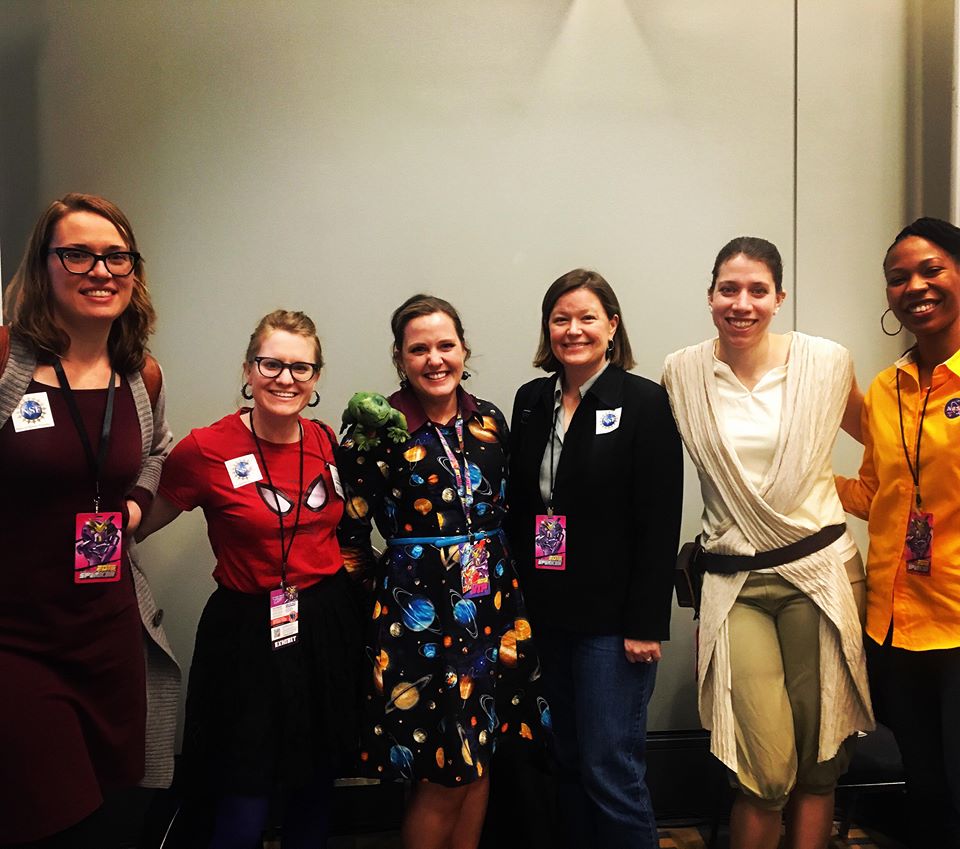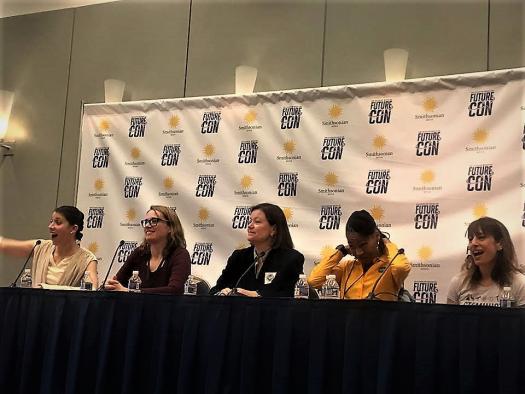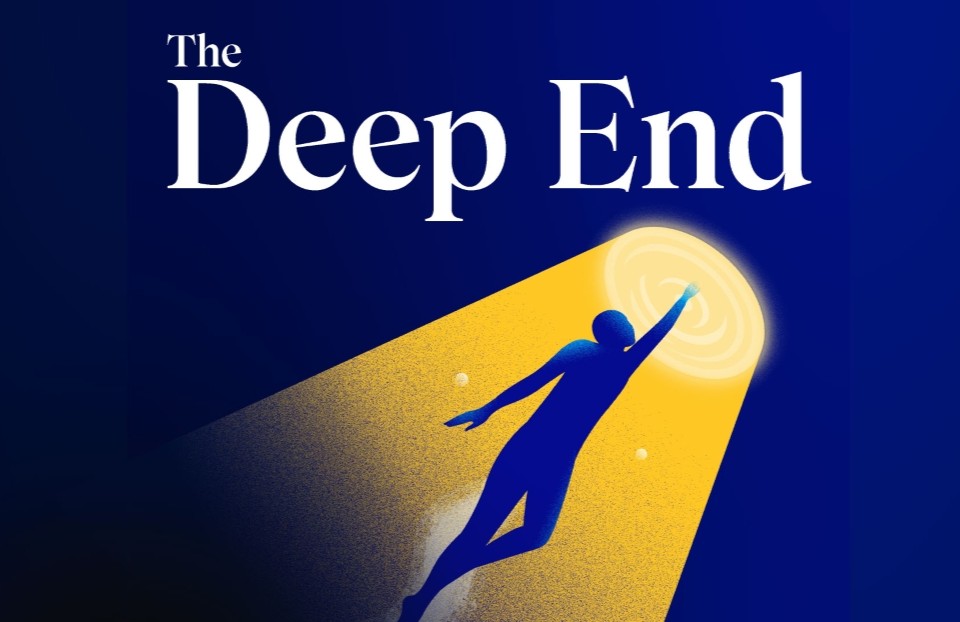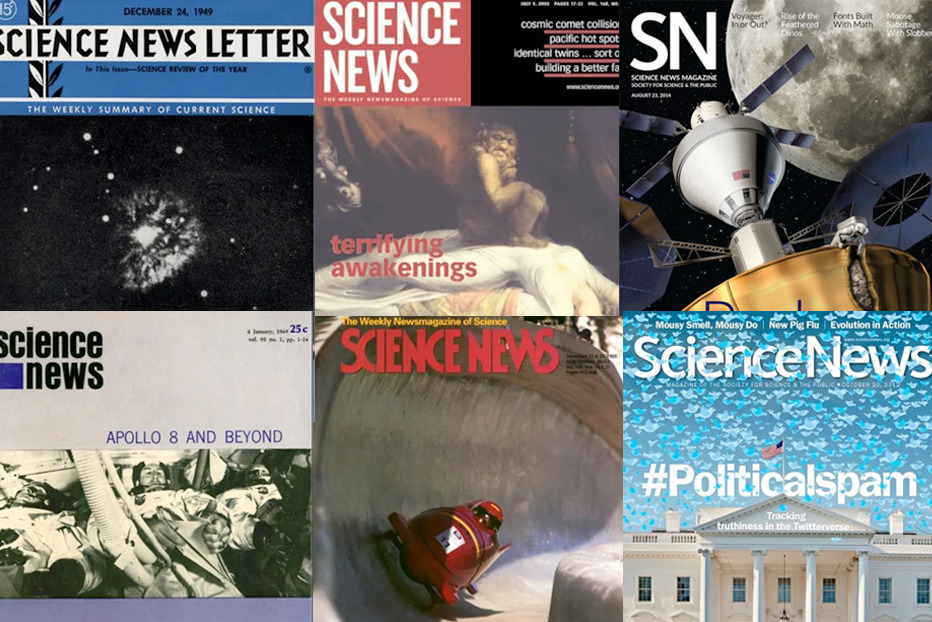Science News, Science News for Students
Brave New Girls: Women in STEM

Brave women characters play a variety of roles in both science fiction and in real-life STEM fields. At Awesome Con, Washington D.C.’s premier pop culture festival, both are celebrated, whether by fans in costume or through their lively and insightful panel discussions.
Science News for Students staff writer Bethany Brookshire moderated one such panel: “Brave New Girls: Women in STEM,” where female scientists and educators shared their experiences in academia, revealing key moments of inspiration, struggles they face as women in addition to their brighter moments and successes.
“I was in love with science from day one”, said Eileen Meyer, Assistant Professor of Physics at the University of Maryland, Baltimore. When she was a child, her parents bought her a book about a female astrophysicist and she was inspired.
For others, like Sabrina Thompson, Aerospace Engineer at NASA Goddard Space Flight Center, the pursuit of science came later. In college, her art teacher suggested she pursue engineering, while her physics teacher told Sabrina to stick with art. He informed her that the science and math prerequisites would be too difficult for her. That experience drove Sabrina to pursue engineering even more.
“It was ammunition to prove him wrong,” said Sabrina.
Similarly, panelist Carie Lemack, cofounder and CEO of Dreamup, swears by fearlessness and taking on challenges. “I switched careers a few years ago, and people told me I couldn’t just switch,” she said. She always wanted to do something in space and is now leading an organization that runs space programs in classrooms, inspiring innovation in young children. Carie explained that students drop out of STEM fields a bit before high school, making exposure to science in elementary and middle school crucial.

Dawn Tilbury, Directorate for Engineering at the National Science Foundation and Professor of Mechanical Engineering at the University of Michigan, said that getting more girls into STEM is a perception issue. When she first arrived to the University of Michigan, she had a conversation with the Director, pointing to the failure to add women scientists and engineers to displays in her department. She found and framed images of women to address the matter.
Dawn also explained that the fraction of women in engineering has stayed at roughly 20 percent.
“We need to broaden the communication that you can make cars safer through engineering. The numbers of women in biomedical engineering majors has gone up, but mechanical engineers can make lives better too,” said Dawn. Currently, she is developing an AP exam in engineering because she believes that will attract bright students to the field.
On a more serious note, the panelists addressed how the #Metoo movement, which has dominated the headlines over the past few months, has affected academia and STEM community at large.
Dawn shared that the way women have been treated in academia has been a big problem. She pointed out that, “One of the problems in academia is the apprenticeship model where there is a huge imbalance of power between mentor and student, because it is hugely personal.”
The National Science Foundation recently released a statement aimed at establishing stricter standards and making it clear that violators would have their grants removed or suffer other consequences. The panelists indicated that the situation is improving as culture slowly changes and evolves to address these issues.
Eileen added that anonymous reporting mechanisms are making things better as well.
“It’s fantastic that there is enough support to be able to come out in this movement,” Eileen said.
All participants on the panel agreed that in their careers and personal lives, women must be brave, ask questions, make mistakes and learn from them, and create a microclimate of supportive people.
“Develop a thick skin. Get bold and collect mentors,” advised Eileen. “You have to develop an unshakable belief in yourself.”
Bethany meanwhile advised all aspiring scientists: “Do not take the phrase ‘nobody knows that!’ seriously. Whatever area of research you choose, always be willing to hunt for those answers!”


